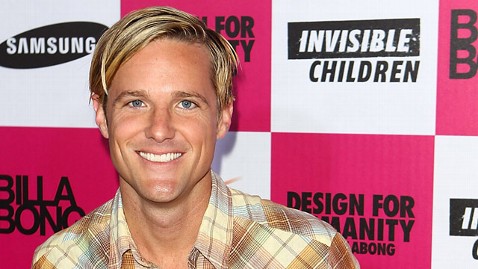'Kony 2012' Director Treated for Psychosis

"Kony 2012" creator Jason Russell is being treated for "brief reactive psychosis," family says. (Image credit: Joe Scarnici/FilmMagic/Getty Images)
Nearly a week after Jason Russell's public meltdown, the "Kony 2012? director is still in the hospital undergoing treatment for "brief reactive psychosis," according to his wife, who blamed the break on extreme exhaustion, stress and dehydration.
"Though new to us, the doctors say this is a common experience given the great mental, emotional and physical shock his body has gone through in these last two weeks," Danica Russell said in a statement. "Even for us, it's hard to understand the sudden transition from relative anonymity to worldwide attention - both raves and ridicules, in a matter of days."
Russell, 33, was taken to a mental health facility for observation last Thursday after onlookers reported him roaming naked through the streets of San Diego's Pacific Beach neighborhood, possibly masturbating, and pounding his fists on the sidewalk. Videos obtained by TMZ show an agitated Russell ranting to himself, bizarre behavior his wife blamed on criticism of his documentary film about African warlord Joseph Kony.
"Because of how personal the film is, many of the attacks against it were also very personal, and Jason took them very hard," she said.
Russell's 30-minute documentary has racked up more than 84 million views on YouTube since it was posted March 5. Supporters signed an online pledge through Invisible Children, a charity that Russell co-founded, to bring Kony to justice. But critics say the film oversimplifies a complex problem and promotes "slacktivism," action that does little to fix the problem.
According to the National Institutes of Health, brief reactive psychosis is triggered by extreme stress, such as a traumatic event or the loss of a loved one. The symptoms, which include delusions, hallucinations and strange speech, can last up to a month, and the person may be completely unaware of them.
Alan Hilfer, chief psychologist at Maimonides Medical Center in New York City, said the backlash over Russell's "Kony 2012? campaign could have been traumatic enough to trigger the meltdown.
"He may not be as internally resilient as someone needs to be to weather a storm of criticism like that," said Hilfer, who is not involved in Russell's treatment. "It might have been such a tremendous injury to his ego that he just sort of fell apart."
With the proper treatment and family support, Hilfer said a person could "put it back together again." Talk therapy can help a person learn to cope with the stress that triggered the problem, according to the NIH.
Danica Russell said her husband had "a long way to go," but she is confident he will make a full recovery.
"He is, and will remain, under hospital care for a number of weeks; and after that, the recovery process could take months before he is fully able to step back into his role with Invisible Children," she said in a statement. "During that time, we will focus not on a speedy recovery, but a thorough one."